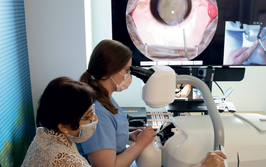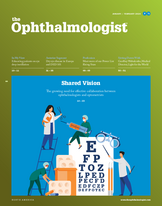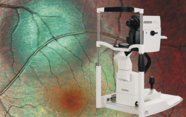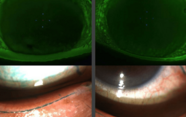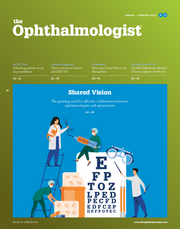Sayoko “Sy” E. Moroi
The Power List 2021 – Power List
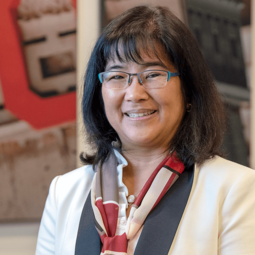
William H. Havener, MD Endowed Professor, and Chair at the Havener Eye Institute, Department of Ophthalmology and Visual Sciences at the Ohio State Medical Center, Columbus, Ohio, USA
What is your proudest professional achievement?
I am completing training to become a certified facilitator on implicit bias. One of my core values is on “clinical social justice;” it peaked with my experience caring for patients who experienced the water crisis in Flint, Michigan. Now, with the ripple effects of the COVID-19 pandemic with respect to disproportionate effects on loss of jobs for women, and violence and brutality against blacks and Asians, I am compelled to take this action to become a certified implicit bias facilitator. I am blessed that The Ohio State University, like many institutions of higher education, has taken bold steps to focus on racial justice. As ophthalmologists, we read the epidemiology and clinical studies that point out healthcare disparities, frequently by race and education, in many ocular diseases. Now, we need to dig deeper beyond these covariates of race and education to understand the “why” behind them. We all expect the answers to be complex, based on infrastructure, finances, other important social determinants of health, and our own personal biases.
Outside of ophthalmology, what makes you happy?
Family. I have the support of my husband, Mike Fetters, who is Director of Mixed Methods Program, Department of Family Medicine at University of Michigan, and four wonderful sons: Kori, Tomoyuki, Kazuhisa, and Takashi. They keep us grounded with love, treasured memories of their childhood, and life’s joys, with family gatherings in person and virtually.
Why is it important to celebrate women in the field this way?
2020 was quite a year: I started serving as chair on January 6, 2020; my onboarding was during the historic year of a global pandemic; and the 100th year to celebrate American women’s full voting rights with the ratification of the 19th Amendment in 1920. While I do not consider myself a feminist, I do understand how I am perceived to increase diversity in leadership as a woman and woman of color. I strive to serve patients for access to high-quality care through my leadership as chair, clinician scientist, and educator. While each institution has its own culture, the new generation of leaders must commit to adapt cultures, reveal our biases, and break silos to serve the public. It is only when measurable changes are instituted that we can improve population health in the US.
What can be done to make the field more diverse?
Biases are normal. We all have them based on our upbringing. Once we realize the role that biases play, then we can mitigate them, and strive to adopt practices that are fair and transparent. We should also consider important cultural attributes and values that will improve population health by specifically addressing social determinants of health.
